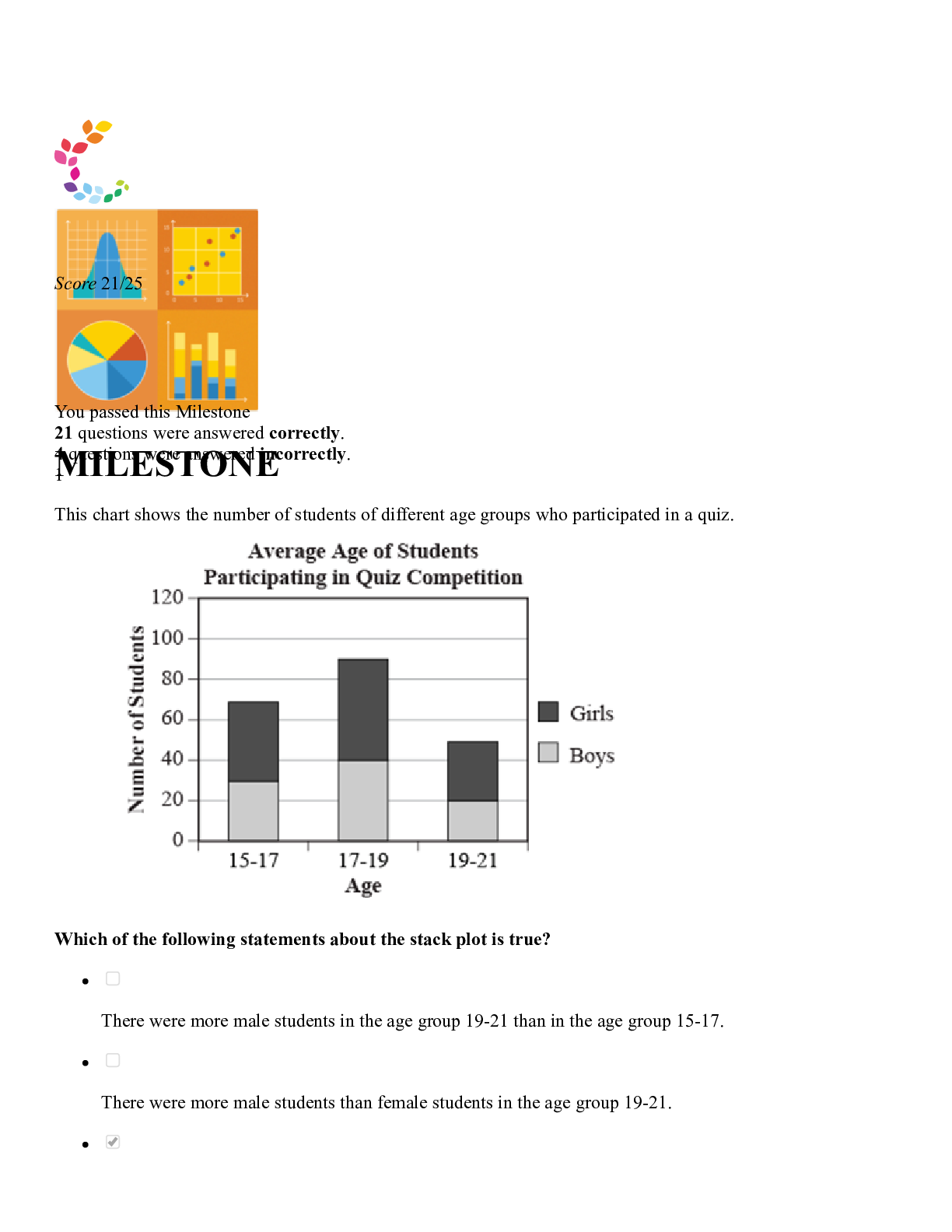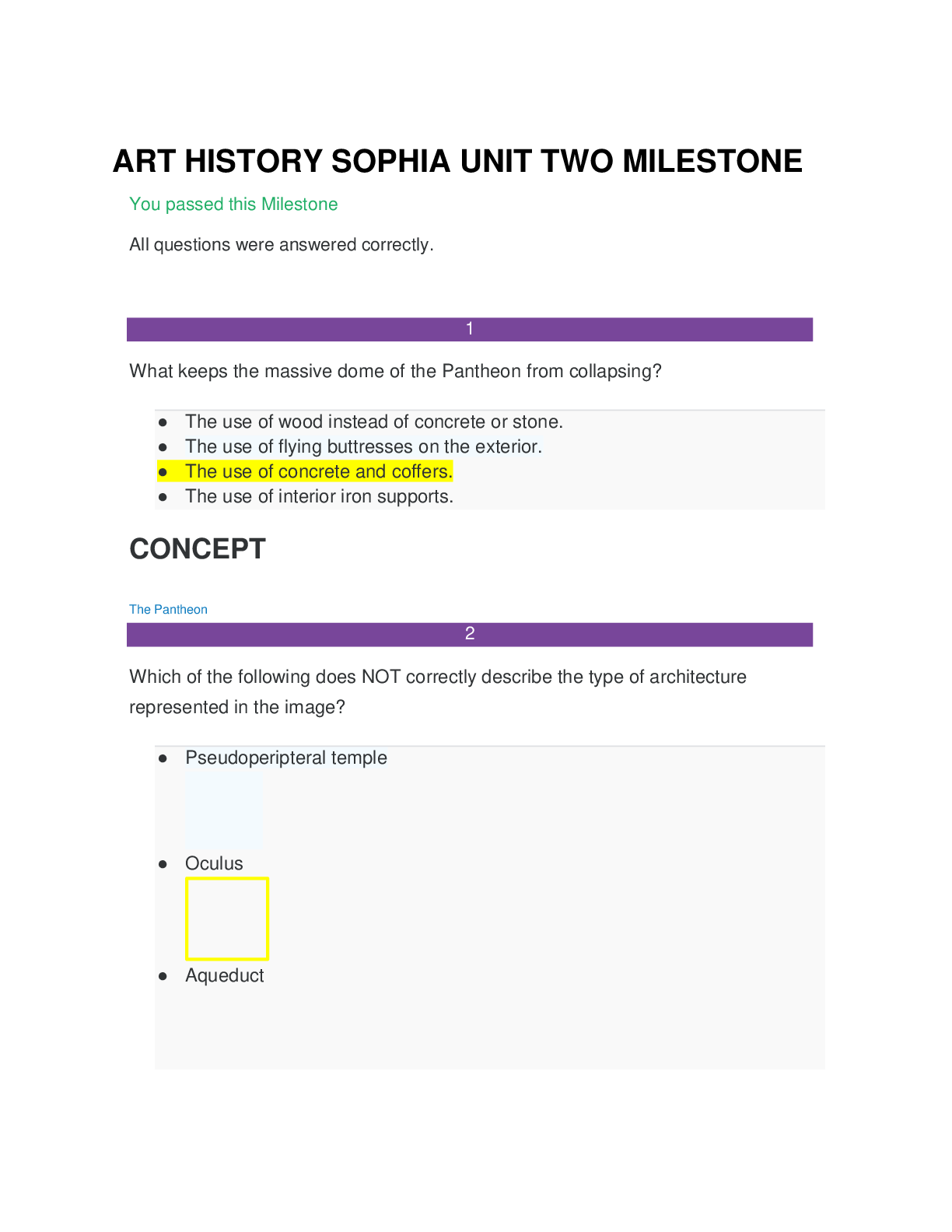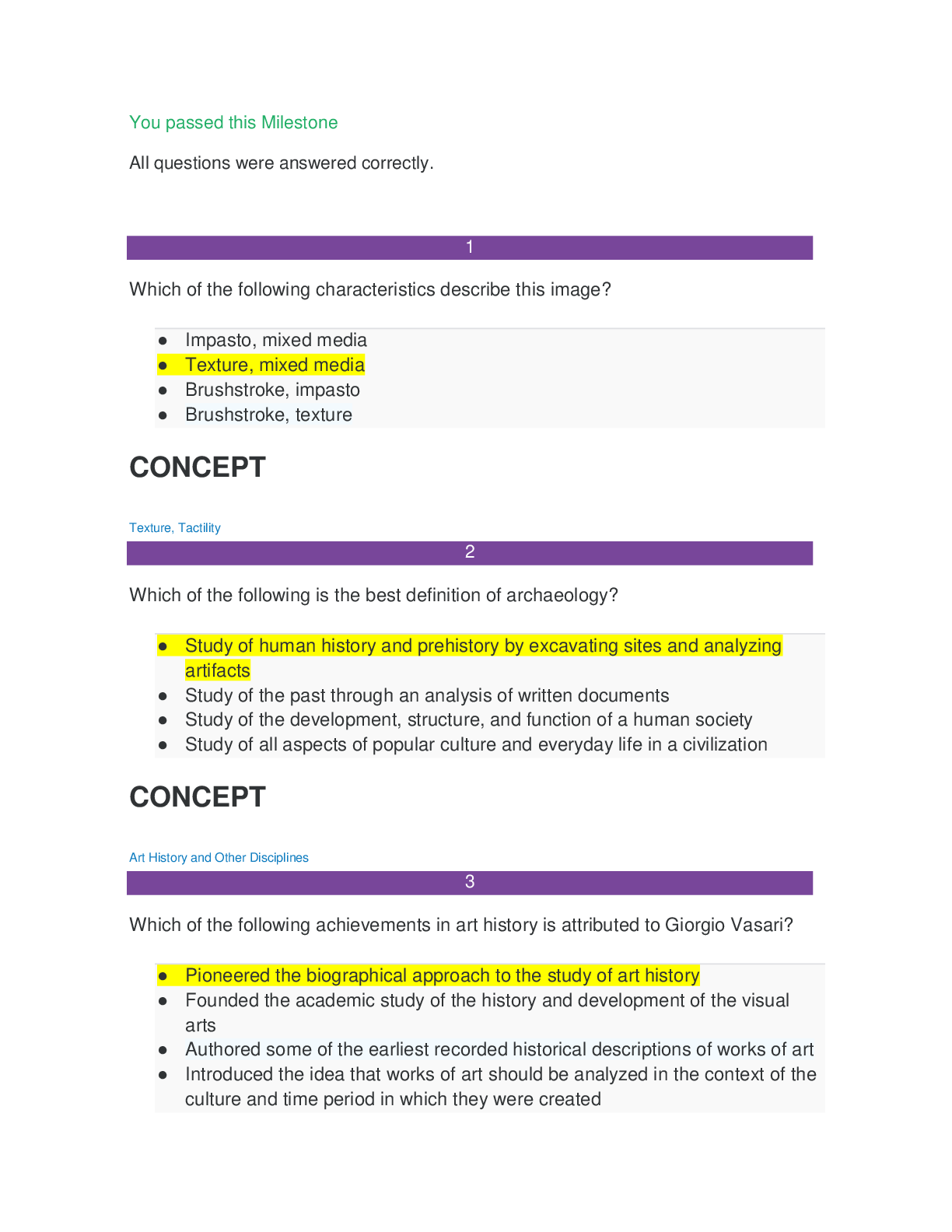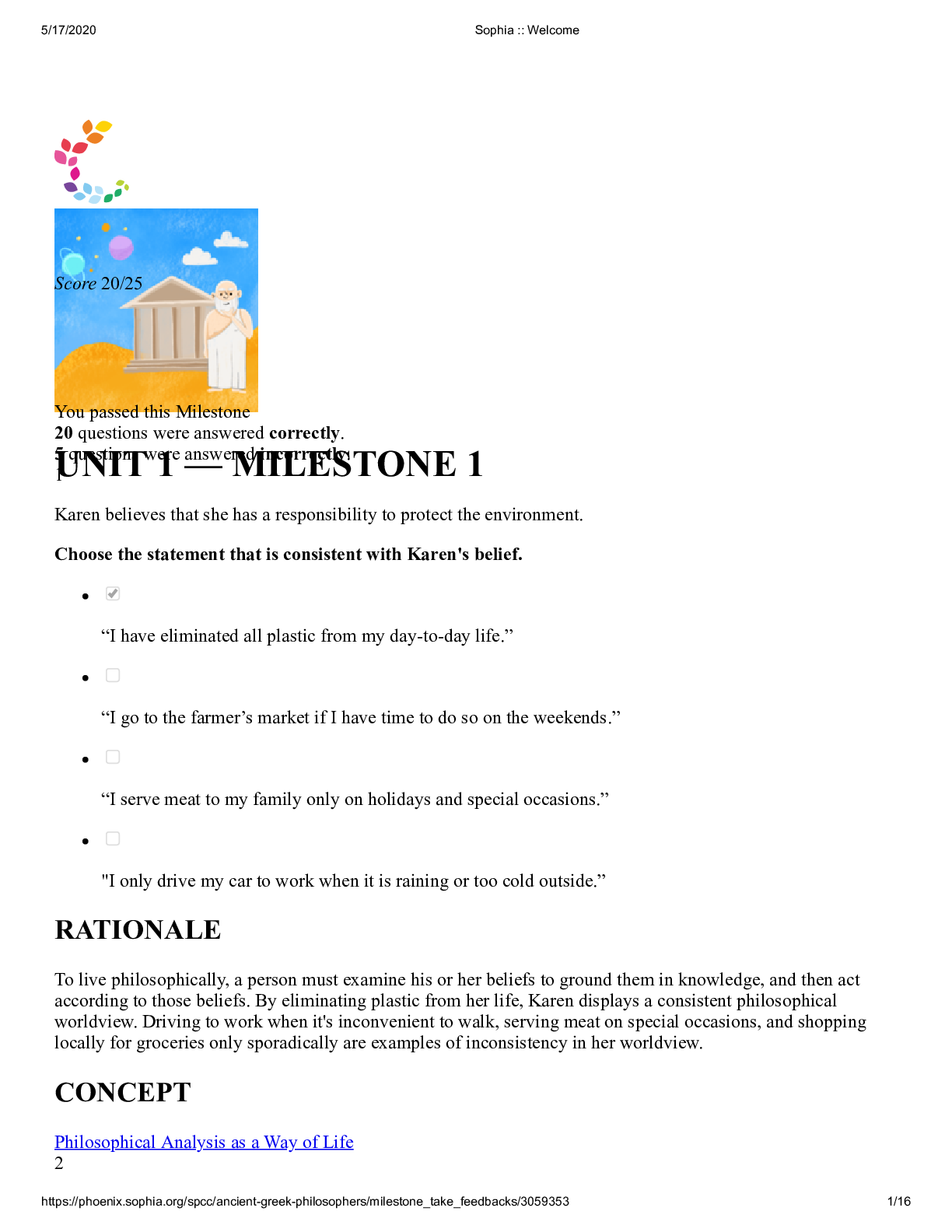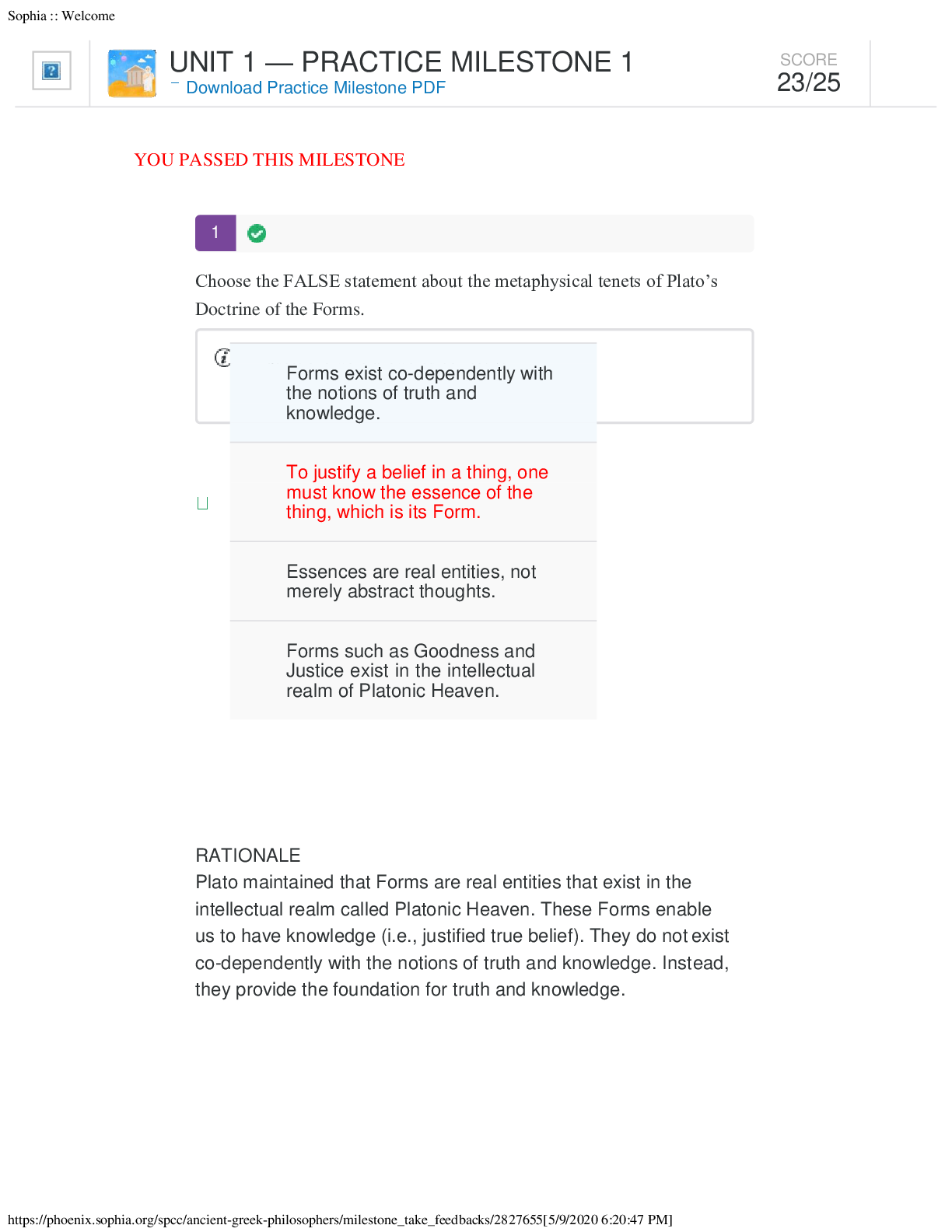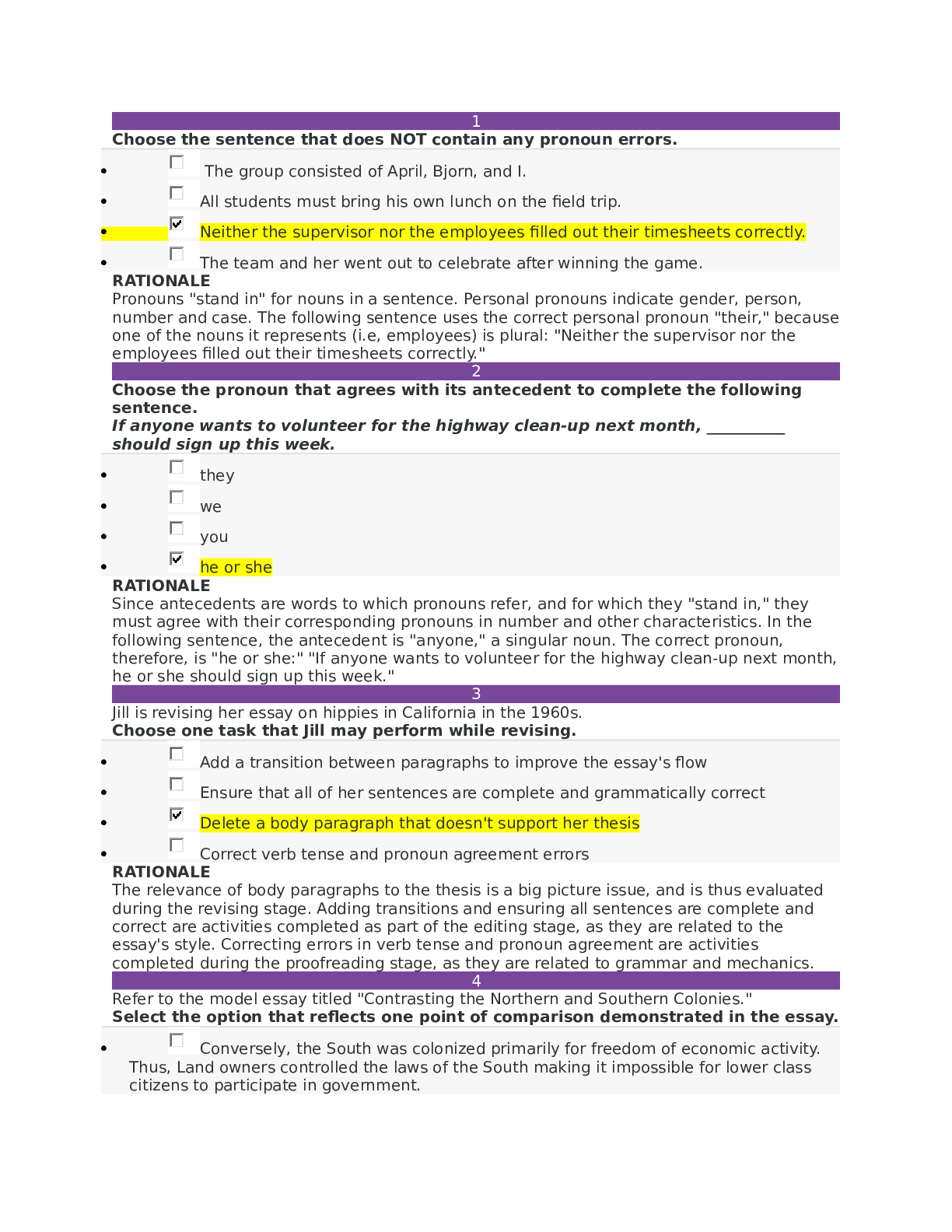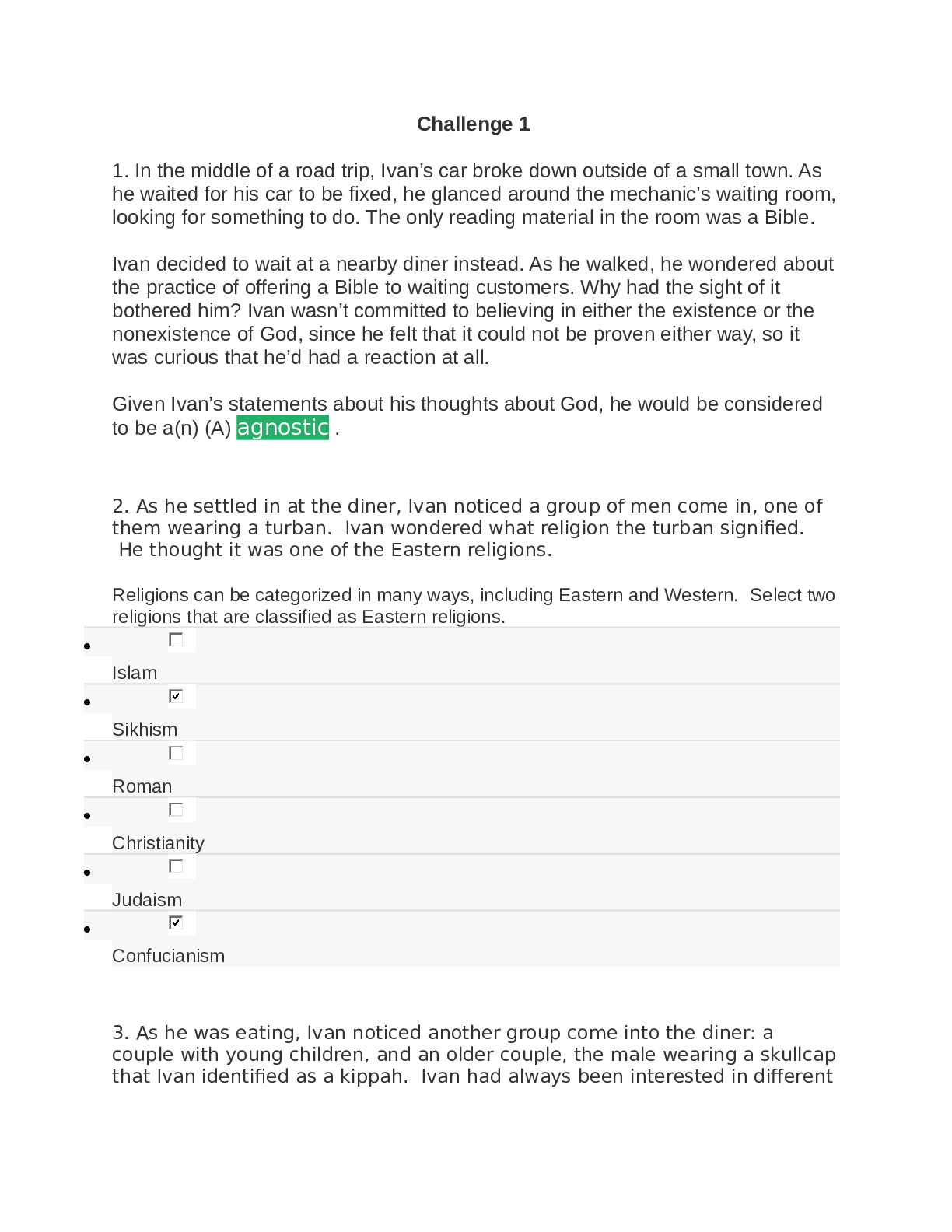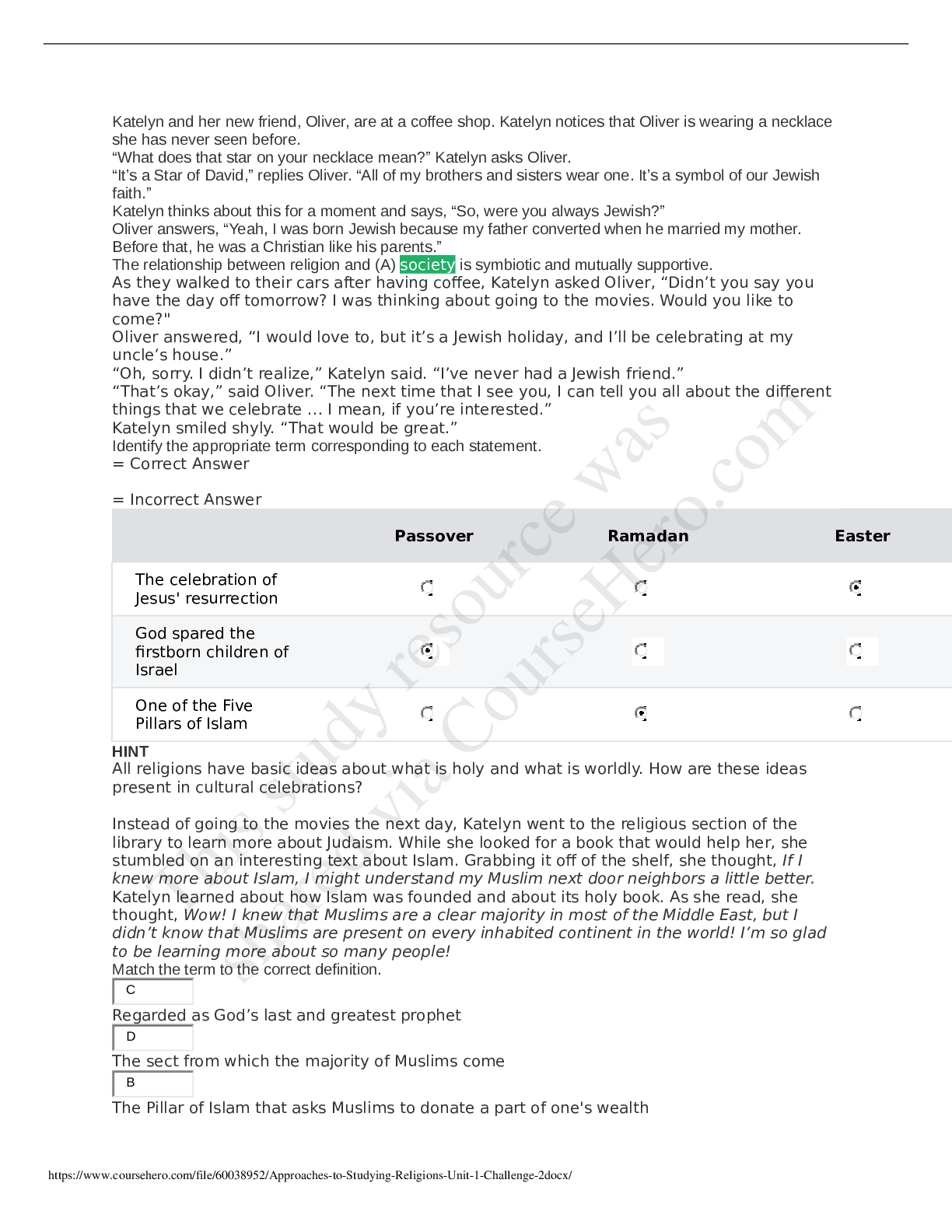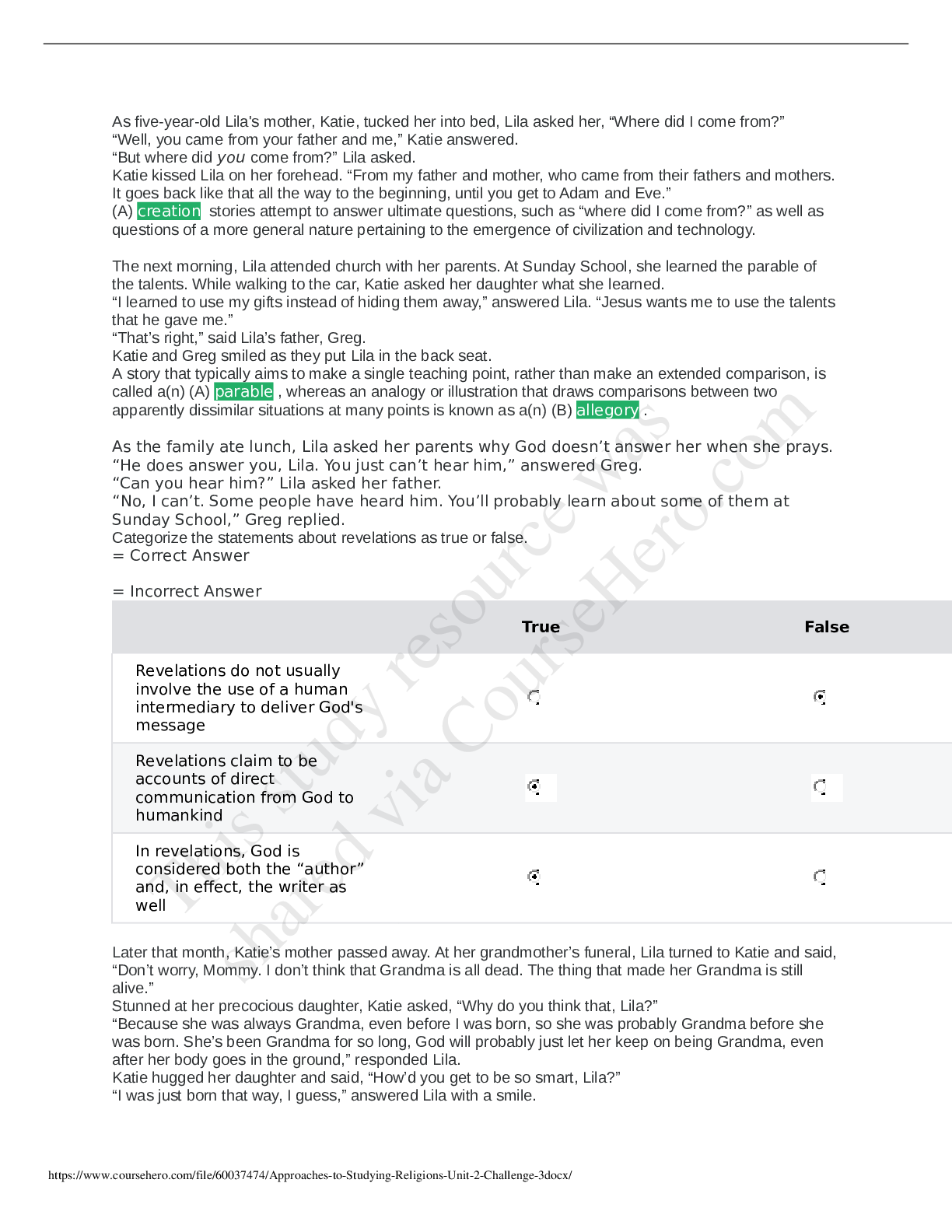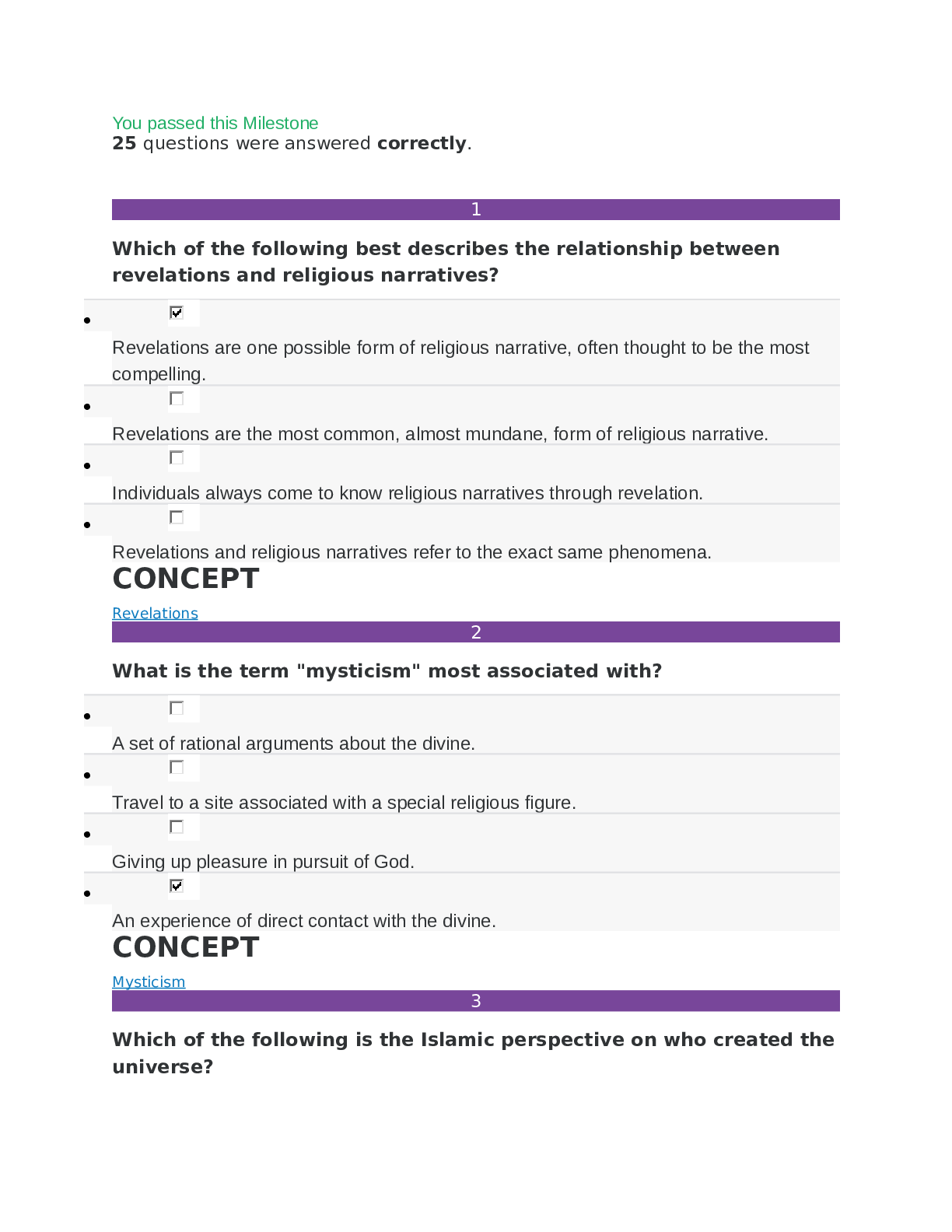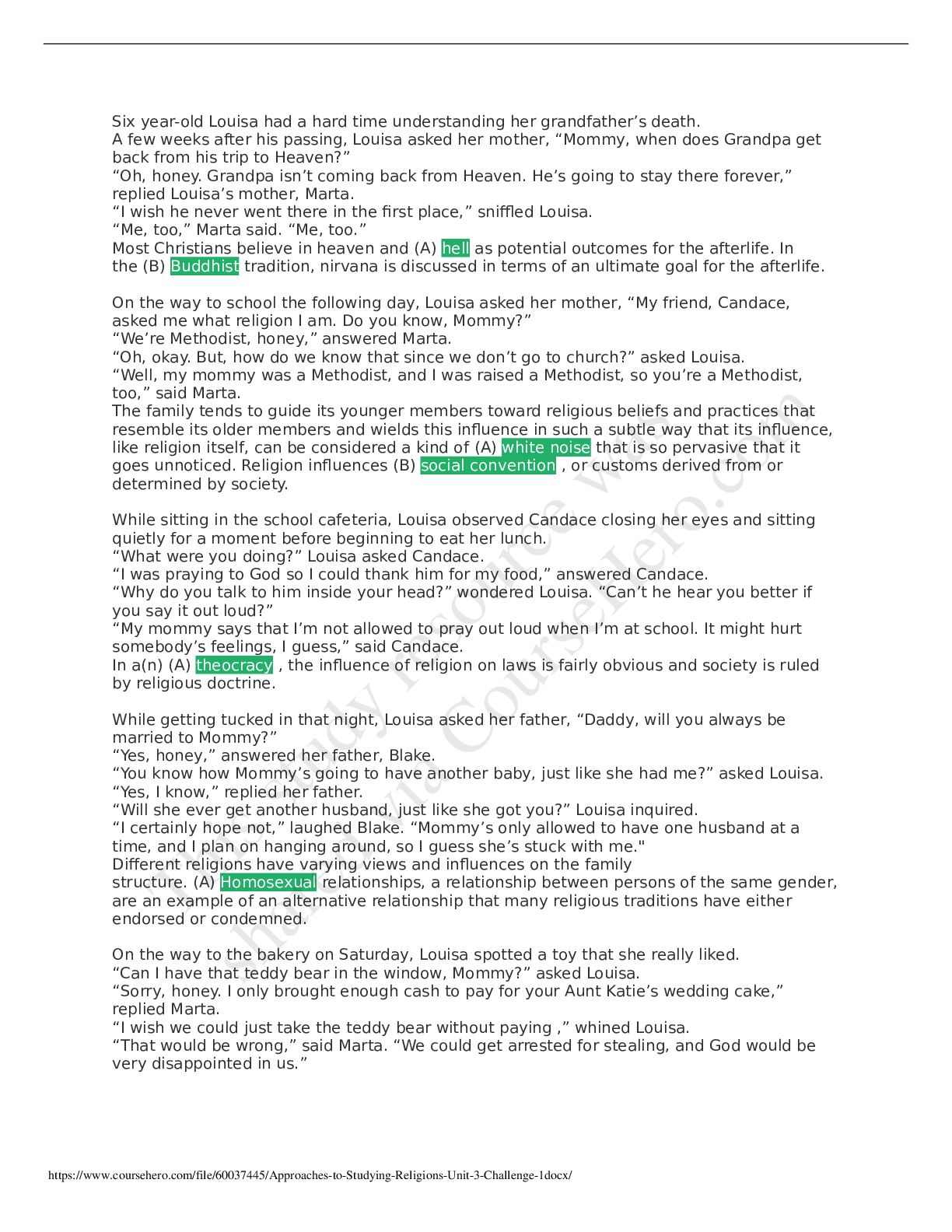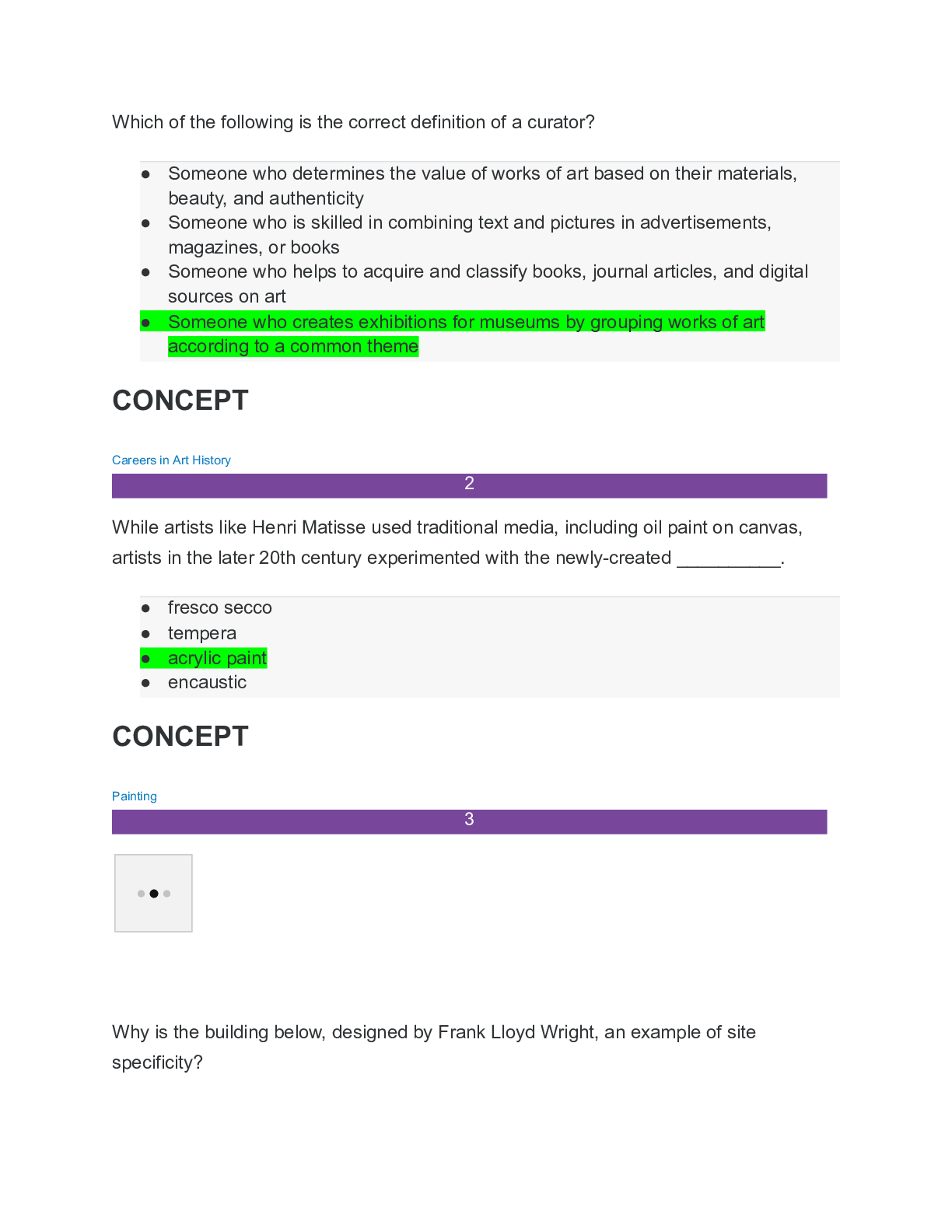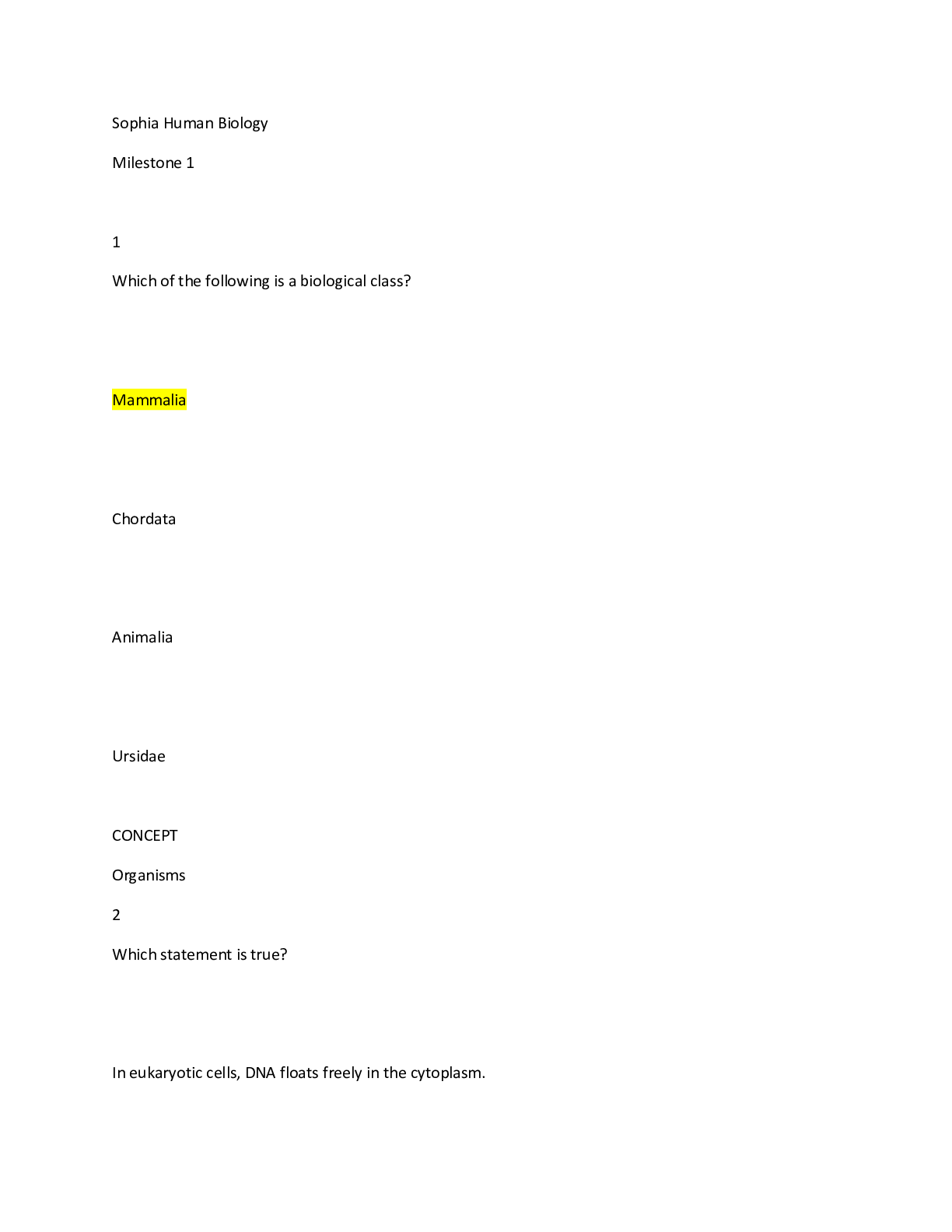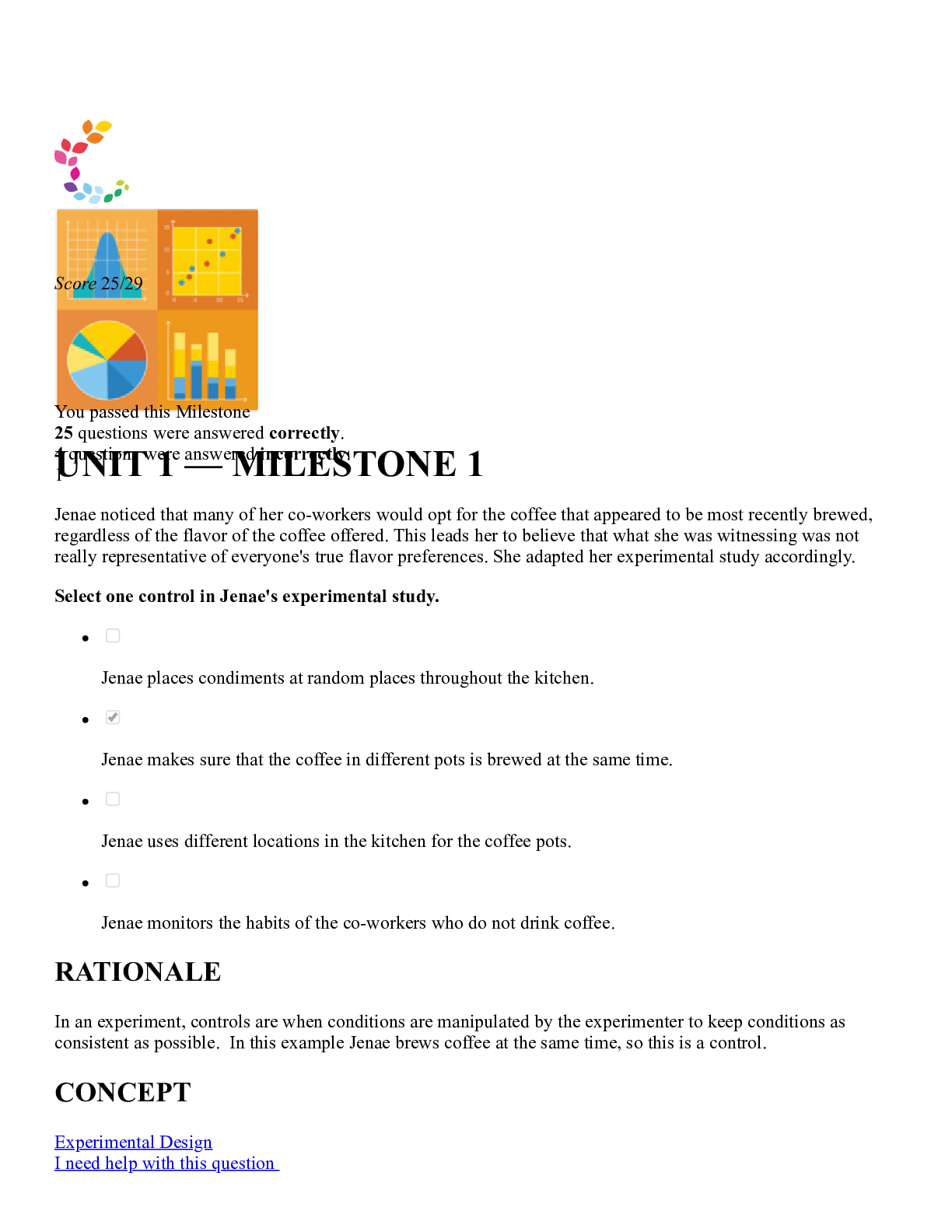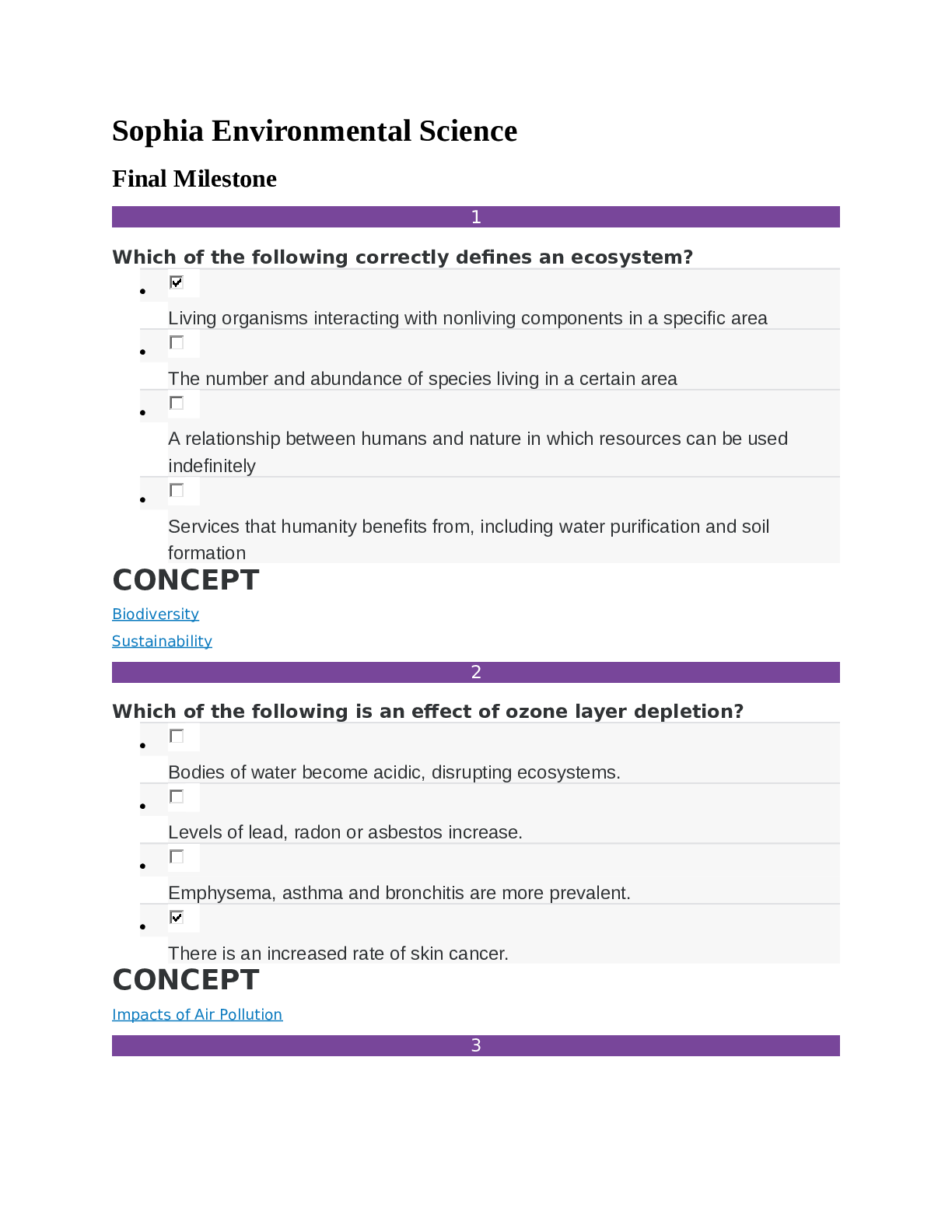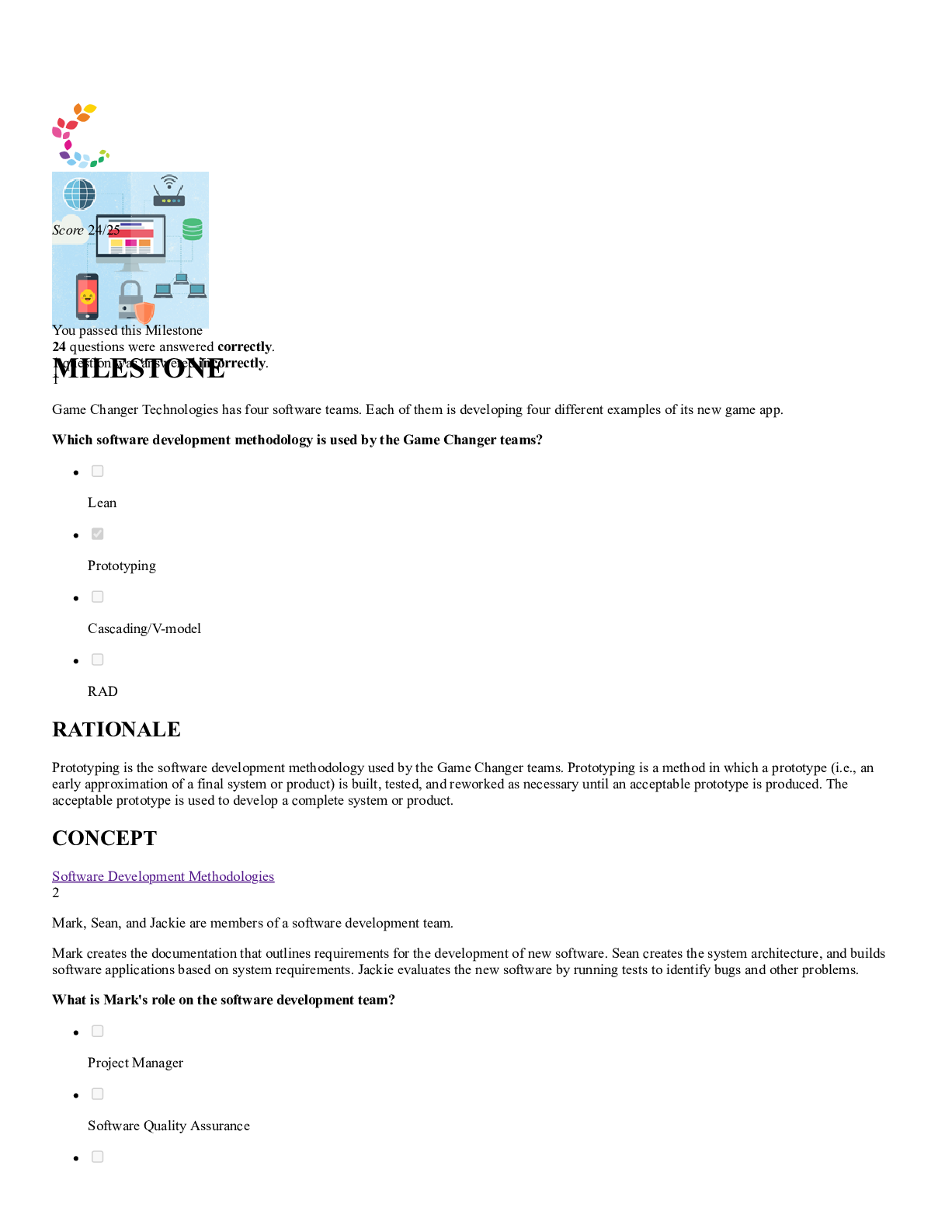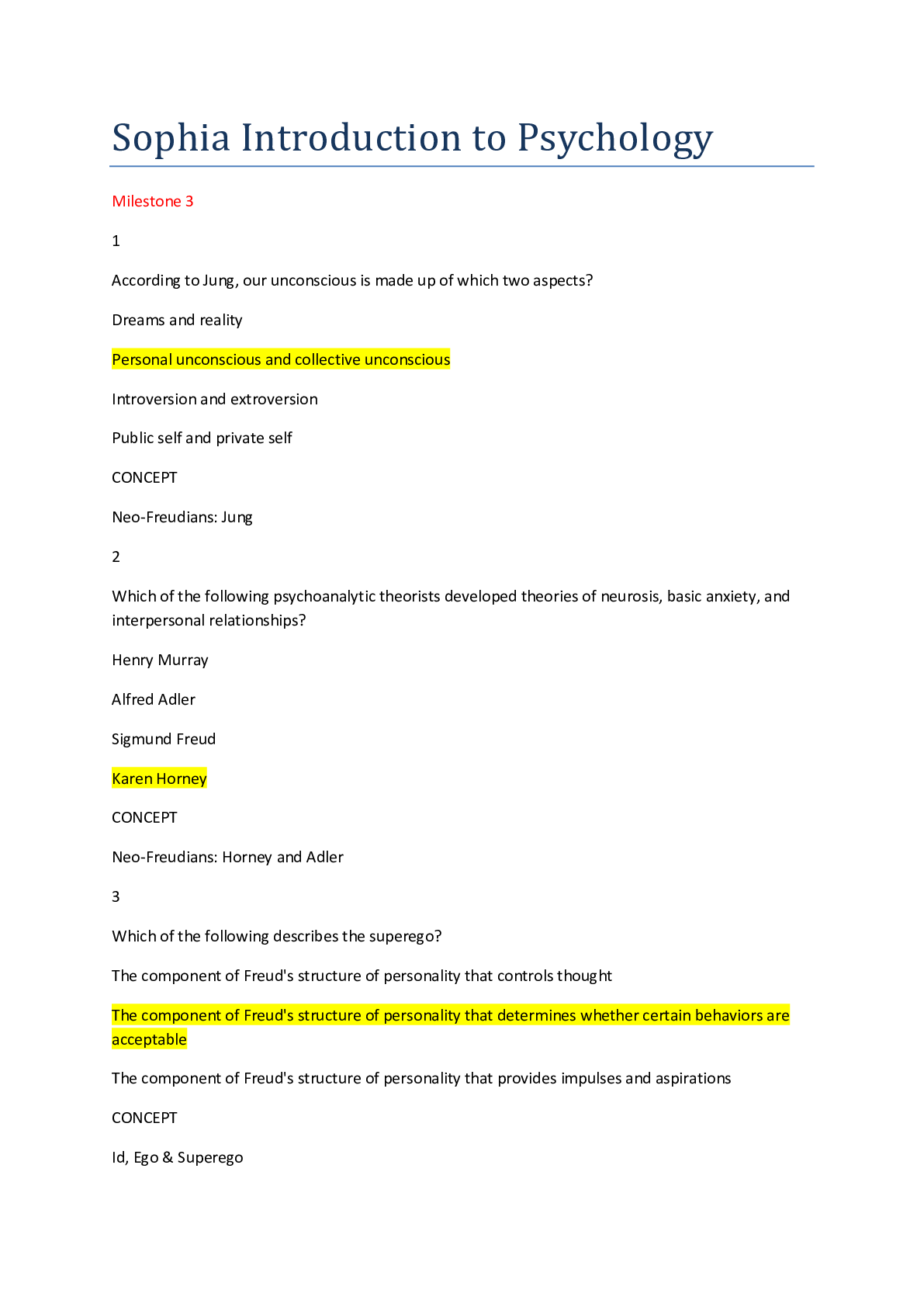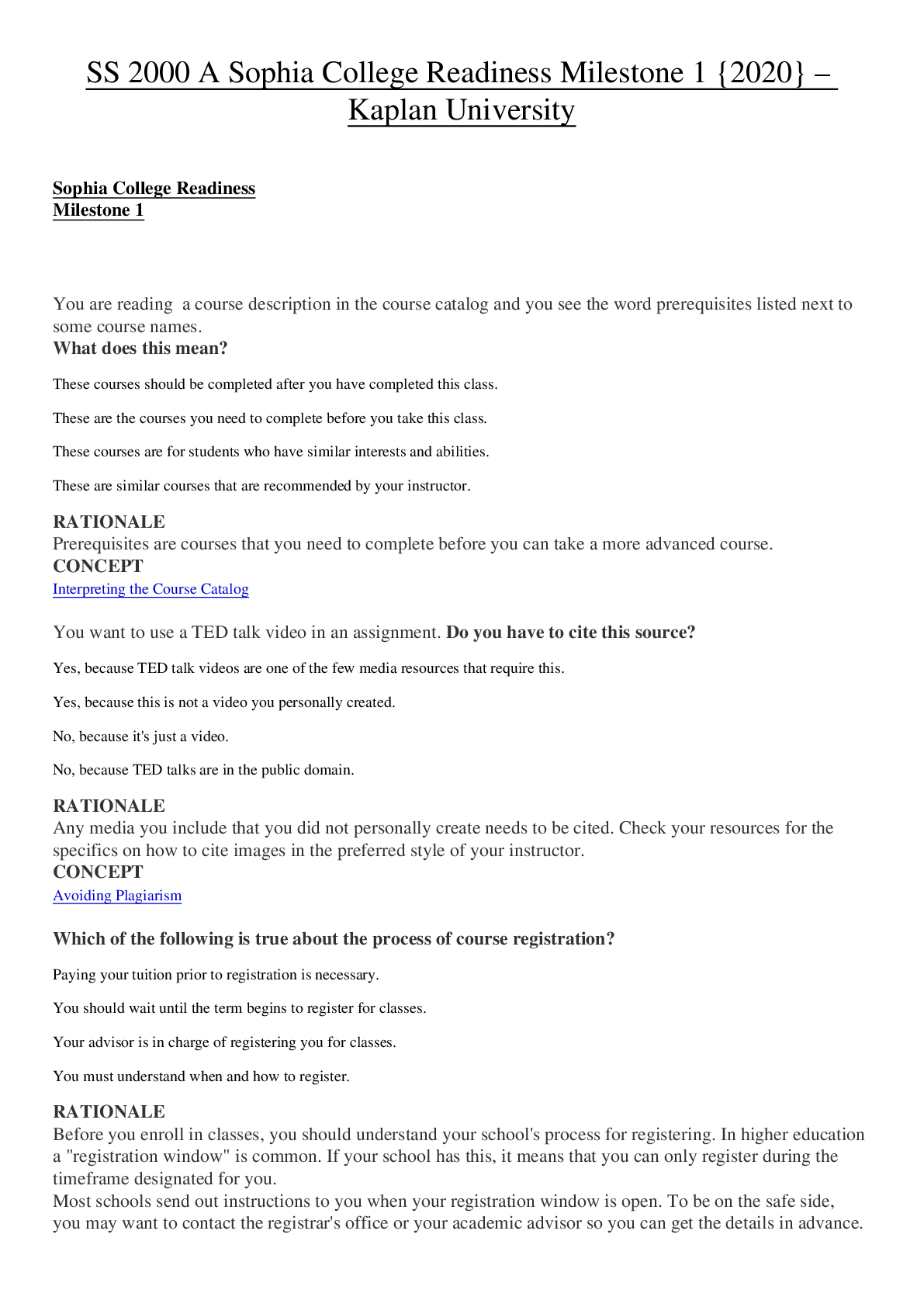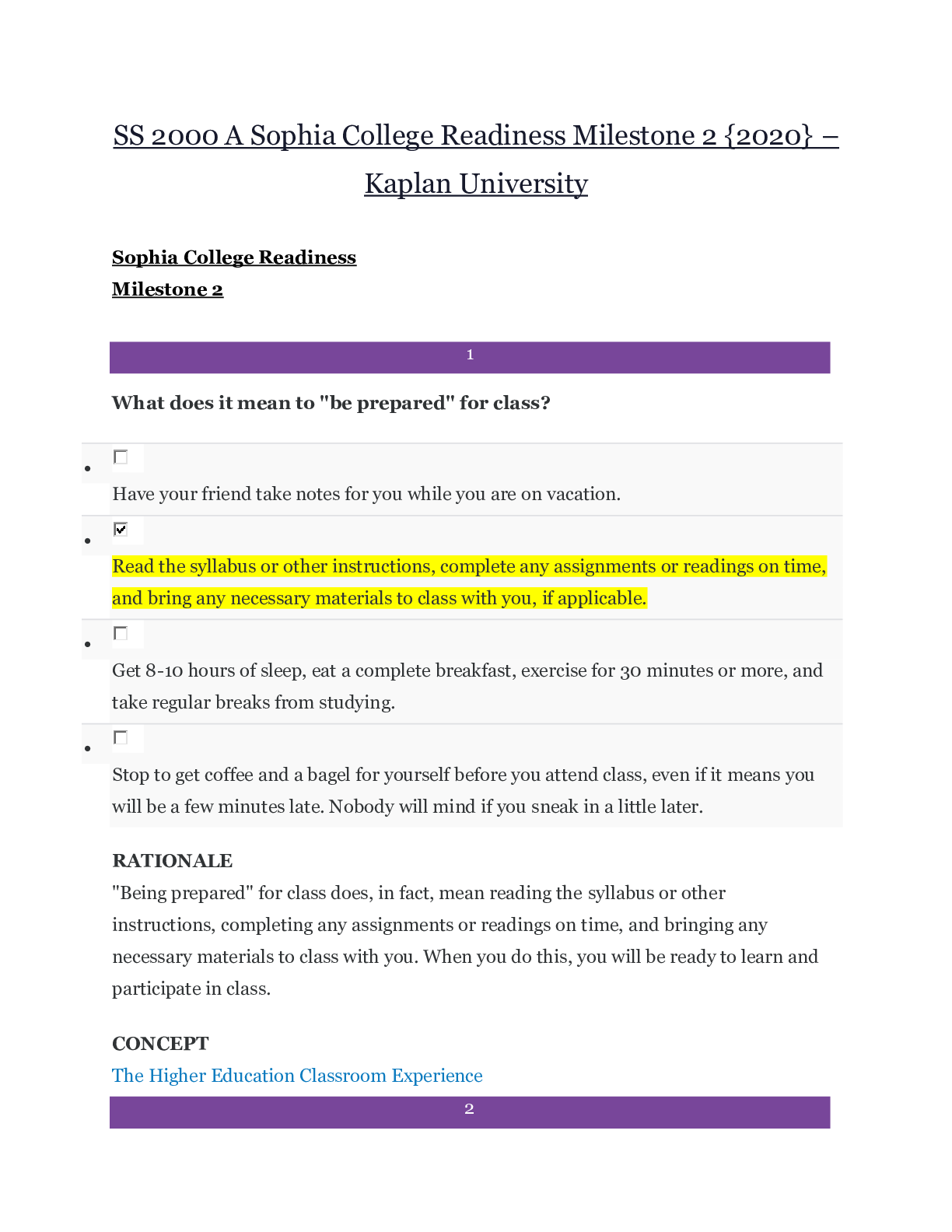Religious Studies > SOPHIA Milestone > Strayer University - RELIGION REL 212Approaches to Studying Religions Unit 2 Milestone. 100%. (All)
Strayer University - RELIGION REL 212Approaches to Studying Religions Unit 2 Milestone. 100%.
Document Content and Description Below
You passed this Milestone 1 The practice of teaching religious doctrines verbally, without writing them down, is known as (A) oral tradition . A manual transmission expressive tradition oral trad... ition instrumental tradition CONCEPT Transmission of the Teaching 2 What do most Christians believe about the Trinity? The three persons of the Trinity are equal. The Father is the most important figure in the Trinity. The three persons of the Trinity are the Father, the Son, and the Holy Mother. The three persons of the Trinity are destined for salvation. CONCEPT Christianity- Trinity 3 What is the defining feature of a secular narrative, as opposed to a religious narrative? There is a lack of distinction between "legal" and "religious" ethics. It centers on worldly, rather than spiritual, content. Its purported authorship is a prophet, rather than God. Its origins at some point in human history are known. CONCEPT The Nature of Religious Narratives 4 Which of the following actions is the Jewish conception of God credited with doing? Sacrificing his only son as payment for our sin. Unifying the ancient near east gods into a pantheon. Delivering the Ten Commandments to humans. Making a contract with Abraham, guaranteeing humans eternal life. CONCEPT Judaism- Yahweh 5 Which of the following is the meaning of the Sanskrit word "dukkha?" Compassion Suffering Merit Sin CONCEPT Suffering 6 Which of the following is true of theism? It is the belief in a personal god who has either a direct or indirect relationship with human beings. It is the belief in a non-personal god who ensures the proper functioning of the universe but does not interact with human beings. It is the belief in multiple gods and goddesses. It is the belief in one god. CONCEPT Theism vs. Deism 7 What does the concept "Summum bonum" describe? The ultimate end which humans ought to pursue. The innate goodness of the human soul. The greatest possible being, or God. An ethical goal unattainable by humanity. CONCEPT Summum Bonum 8 What is atheism? The belief that all religions are (in essence) correct. The belief that there is no God. The belief that the material world is infused with the divine. The admission that one does not know if there is a God or not. CONCEPT Atheism 9 Which of the following is the goal of Taoist practice, as taught from its beginning in ancient China? To become well-respected and successful To achieve liberation from the world To attain union with God To become one with the Tao CONCEPT Taoism - The Tao 10 Which of the following is an example of a non-theistic religion? Hinduism Christianity Buddhism Islam CONCEPT Non-Theism 11 Monotheism is the belief that: only one God exists. God and humanity are one. all things have one essence. God exists, but is not personally invested in humans. CONCEPT Monotheism 12 Which of the following correctly defines evil as it is seen in the Taoist tradition? When one puts forth too little effort Living life without a plan or goal Ignoring the teaching of Lao-Tzu Society’s interruption of the “uncarved block” or state of nature CONCEPT Evil 13 Which of the following is the correct definition of pantheism? The belief that nature is identical with divinity A variety of nature-based deities The belief that there are many gods and goddesses The idea that each religion should define God for itself CONCEPT The Transcendent in Primal Religions 14 Zazen is an act of ritual meditation in which tradition? Hinduism Jainism Daosim Zen Buddhism Silence 15 Which of the figures below is regarded as the first to teach about the Tao? Lao-Tzu Mao Zedong Confucius Siddhartha Gautama CONCEPT Taoism - The Tao 16 Which of the following best describes the relationship between revelations and religious narratives? Revelations are the most common, almost mundane, form of religious narrative. Revelations are one possible form of religious narrative, often thought to be the most compelling. Individuals always come to know religious narratives through revelation. Revelations and religious narratives refer to the exact same phenomena. CONCEPT Revelations 17 Which of the following is not a common practice used to achieve a mystical state? Contemplative prayer Almsgiving Meditation Chanting CONCEPT Mysticism 18 According to the Advaita Vedanta school of Hindu philosophy, how do followers find liberation? Through honoring the Great Spirit By making offerings to the gods and goddesses By recognizing the identity of the self (Atman) and the whole (Brahman) By strict obedience to the behavioral prescriptions found in the Ramayana CONCEPT Hinduism - Brahman/Atman 19 Which of the following defines the term "ritual?" A sacred action A belief in a higher power A sacred story A special prayer CONCEPT Action 20 In Buddhism, the liberation from suffering and the end of the cycle of rebirth is known as: death. the Middle Way. the doctrine of no-self. nirvana. CONCEPT Death 21 The term "animism" originates from the Latin "anima," meaning: reverence. soul. movement. animated. CONCEPT Animism and Related Beliefs 22 Which of the following is among the seven sacraments recognized by the Catholic Church and other Christian denominations? Attending church Baptism Honoring saints Celebrating Christmas CONCEPT Sacramentalism 23 Although problematic questions of human existence have doctrinal or philosophical answers, they are also: ultimately unsuccessful in the eyes of most practitioners. addressed by practices in many traditions. not a concern for the average practitioner. the sole topic that religious myths are concerned with. CONCEPT Overview of "The Problem" 24 Which of the following is the Islamic perspective on who created the universe? Allah created the universe. The Holy Spirit created the universe. Muhammad created the universe. Abraham created the universe. shared via CourseHero.comCONCEPT Islam- Allah 25 Ultimate questions can be defined as questions aimed at what kind of understanding? Universal Particular Concrete Abstract CONCEPT [Show More]
Last updated: 1 year ago
Preview 1 out of 8 pages
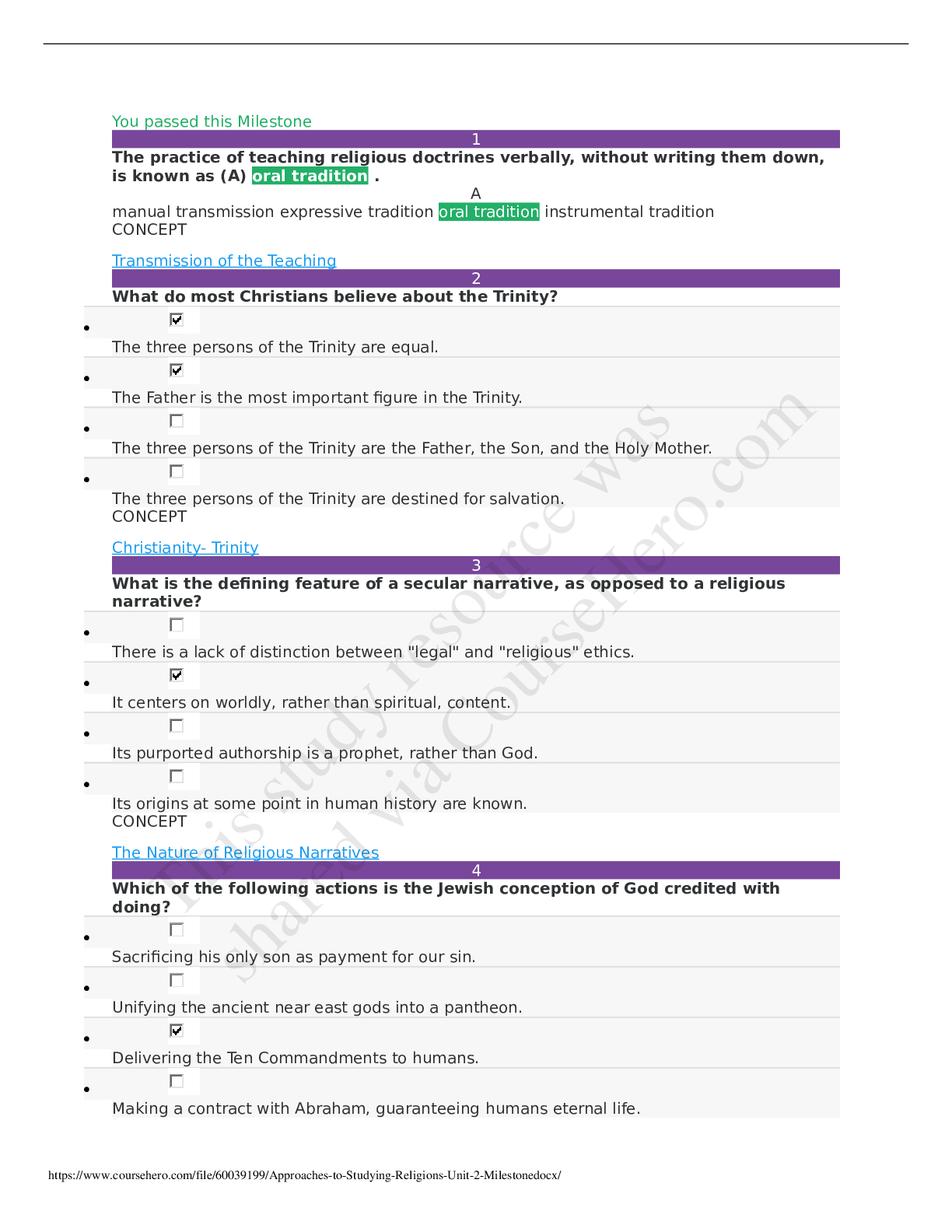
Reviews( 0 )
Document information
Connected school, study & course
About the document
Uploaded On
Mar 20, 2021
Number of pages
8
Written in
Additional information
This document has been written for:
Uploaded
Mar 20, 2021
Downloads
0
Views
59

